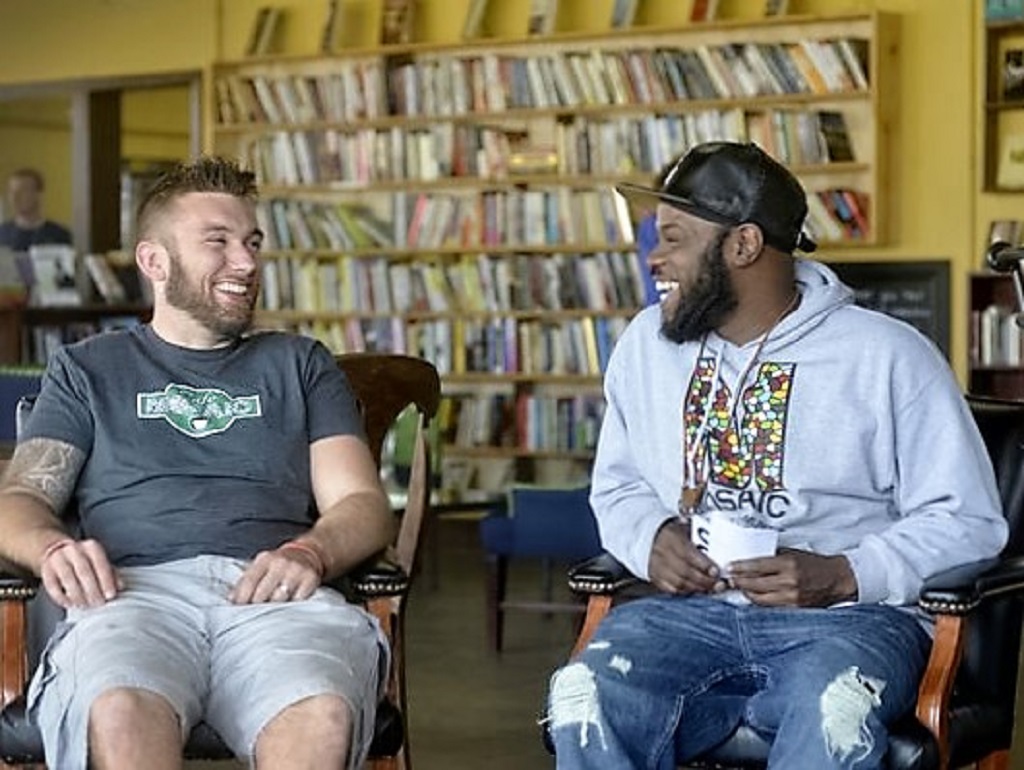There is not one person among us who is not broken in some way. We carry with us the scar of original sin, which weakens us in every aspect of our lives. It is true that some of us carry heavier burdens than others, but we can not judge another’s trials for brokenness can be deeply hidden. For some, our brokenness is right there for everyone to see: a woman in a wheelchair or a veteran struggling to walk with a prosthetic leg. But, for others, the woundedness is hidden; the girl standing next to us in the checkout line is reeling from her parents’ announcement of divorce or the dad standing handing out snacks at his son’s soccer game is dealing with a diagnosis of cancer. We can look at every single person that we brush by daily and acknowledge: we all share in this brokenness.
One of the hardest thing that Christians must do is to find blessing in our brokenness. No, our reaction to brokenness is blame: “This would have never happened if he’d only agreed to counseling!” We get angry – at others and at God. We may feel shame: “I don’t want anyone to know my family’s issues; I’m so embarrassed.” So quietly, with great care, we tip-toe through our day – unable or unwilling to not only acknowledge the blessing in the brokenness.
Fr. Henri Nouwen is well-known for pondering questions such as, “How can I possibly find blessing in this mess? In the diagnosis? In this tattered relationship? In this time of loss?”
The great spiritual call of the Beloved Children of God is to pull their brokenness from the shadows of the curse, and put it under the light of the blessing … The powers of the darkness around us are strong, and our wold find is it easier to manipulate self-rejecting people than self-accepting people. But when we keep listening attentively to the vice calling us the Beloved, it becomes possible to live our brokenness, not as a confirmation of our fear that we are worthless, but as an opportunity to purify and deepen the blessing that rests upon us … (Life of the Beloved: Spiritual Living in a Secular World)
However devastating a situation we may be in, Christ walks with us. Our God is not a distant or far-off god, who like a child bored with an old toy, has abandoned us. Our God is not a god who favors one person over another, Nor does God, like a beggar at a banquet, try to snatch a bit our happiness to keep for himself.
No: our God calls us Beloved: you. Me. That kid picking his nose on the bus. The snooty waiter at the coffee shop. The mom struggling with a toddler and a grocery cart at the store. We are all Beloved. And it is this quality alone (this gift, this grace!) from God that allows us to drag our brokenness into light from darkness. We show it to everyone, and they allow us to see theirs. We acknowledge our sinfulness, the part we play in our brokenness and the brokenness of others. Then, our brokenness no longer frightens us or brings shame. Why? Because our brokenness – which has been known by God for all eternity – was carried on His back and nailed to that cross as He suffered and died or His Beloved. It was redeemed both in beauty and brokenness, and that redemption is ours by our heritage, by baptism and by living a life worthy of the Beloved Children of God.

